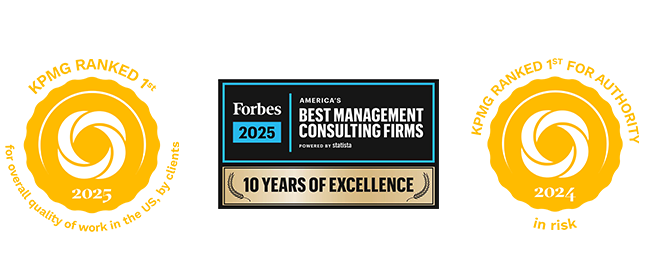How managed services can solve finance’s top challenges
Finance leaders face mounting pressure to transform operations. Here’s how a robust as a service model can help.

Making Innovation in Finance a Habit
To paraphrase some famous shark hunters: The company finance team is going to need a bigger boat.
OK, so maybe there aren’t literal sharks circling the organization. But today’s rapid, unpredictable business currents are teeming with risks, threats, and missed opportunities as the finance team’s available bandwidth is all but consumed by current processes.
Amid this expanding volatility, the company’s demands on its finance operations are also multiplying –faster closes, more accurate forecasts, advanced analytics, and the seamless adoption of game-changing technology, to name a few. And all while reducing costs and improving bottom-line results.
Yet many CFOs and their teams are still weighed down by legacy anchors such as outdated operating processes and technologies, talent shortages, and a lack of investment dollars to address those issues. It’s a systemic Catch-22 that stifles opportunities to innovate and create new value.
For many finance leaders, it’s time to rethink their approach. That’s where Finance as a Service (FaaS) comes in. By partnering with a new class of managed service providers, organizations can transform their finance functions—gaining the scale, speed, and insights needed to navigate their most intractable problems.
Finance as a Service with AI elevates finance functions, reduces costs, and boosts productivity
Finance teams face a growing roster of complex issues even as the company pushes them to move faster, innovate operations, and deliver more value. To make that happen, many companies are turning to a new class of managed services providers.
Introducing a New Approach to Solve Seven Persistent Finance Challenges
Here’s a closer look at how the FaaS model is helping companies to sunset seven key challenges.
Help wanted

The demand for skilled finance professionals outstrips supply. Teams are stretched thin, and critical expertise is often missing. Upskilling existing staff is a nice idea, but who has the time?
The FaaS track:
With FaaS, organizations gain instant access to finance professionals who bring specialized skills in areas such as financial planning and analysis (FP&A), risk and compliance management, advanced analytics, data and technology, and more. This ready-to-go team can seamlessly integrate into operations, bringing a powerful combination of both domain and industry experience—quickly absorbing critical tasks and elevating operations.
The result:
A stickier and more productive organization overall, with a 15 percent to 25 percent decrease in voluntary employee attrition.1
Cost conflicts
Outdated operations drain budgets and diminish returns. The related cost inefficiencies complicate the funding needed to elevate the company’s people, processes, and technologies to meet evolving business demands.
The FaaS track:
FaaS shifts finance operations from sunk fixed costs to a more flexible cost model. By leveraging subscription-based services, companies can quickly streamline operations, realign in-house staff, and improve cost certainty. This model also accelerates the wind-down of top-heavy legacy systems and operational overhead. Most critically, FaaS gives organizations enormous new flexibility, with the option to scale support up or down as the business requires.
The result:
A leaner, more efficient, and more productive finance operation, with some companies achieving as much as a 45 percent reduction in finance operating costs.1
Trapped by technology
-19852.jpg)
Many finance teams are stuck with outdated, poorly integrated technology systems that are hard to shed due to tech debt burdens that limit capital investment options.
The FaaS track:
FaaS providers deliver leading cloud-based solutions that integrate seamlessly across functions. With ongoing updates and proactive management, finance teams stay ahead of the tech curve without the burden of in-house maintenance or long-term capital investment commitments. This pay-as-you-go model also provides cost-effective access to new solutions as they become available.
The result:
A rapid wind-down of tech debt that is a big driver in FaaS’s demonstrated ability to improve overall free cash flow by at least 20 percent.1
Stuck in data limbo
Disparate, redundant, low-quality data—complicated by years of unresolved issues—have enterprise data enhancement initiatives permanently stuck in the “tackle it next year” bin.
The FaaS track:
FaaS specialists deploy advanced tools for data validation, cleansing, and integration. They implement new data models that streamline access and reporting, ensuring consistent, high-quality data across the organization. By mapping all required data to the cloud—and, increasingly, using AI to create on-the-fly virtual databases—FaaS enables companies to quickly put legacy data roadblocks in their rearview mirror.
The result:
Faster data retrieval and reporting, improved accuracy and governance, and a 15 percent reduction in data quality issues.1
Yesterday’s insights

Despite access to vast amounts of data, many finance teams still struggle to produce insights that drive decision-making with the speed and value required today.
The FaaS track:
FaaS providers bring specialized teams and technologies that significantly enhance FP&A functions. For example, their specialists can deploy advanced intelligent forecasting and scenario-planning solutions that deliver faster, more accurate insights and enable company leaders to respond to opportunities and threats more rapidly.
The result:
A dramatic upgrade for FP&A that is delivering a 50 percent improvement in forecast accuracy and five times faster planning cycles.1
Falling behind on AI
While AI offers enormous potential to transform finance, many teams lack the expertise and resources to implement and optimize AI-driven tools.
The FaaS track:
FaaS’s robust teams and services are loaded with AI capabilities from the start. The teams understand that generative AI (GenAI) is the latest addition to AI’s expanding suite of established AI technologies, including predictive analytics, scenario modeling, machine learning, and more. These AI capabilities help streamline finance operations from end to end—everything from transaction processing to strategic planning.
The result:
AI-powered finance solutions are driving tangible results across the board—automations, productivity, innovation, speed to market, and return on investments.
Stuck in neutral

Closing the books and updating the forecast still take too long at many companies. Tradition-bound finance operations are struggling to adapt and keep up, which slows down the entire organization.
The FaaS track:
By automating repetitive tasks and standardizing processes, FaaS reduces cycle times and increases productivity. Teams have more time for innovation, collaboration, and identifying insights and opportunities that create new value for the business. The entire organization is better positioned to move quickly and keep pace with today’s ever-increasing challenges.
The result:
An improved employee experience and more agile operations, with a 50 percent increase in productivity and six times more time for collaboration and innovation.
Finance as a Service with AI elevates finance functions, reduces costs, and boosts productivity
Finance teams face a growing roster of complex issues even as the company pushes them to move faster, innovate operations, and deliver more value. To make that happen, many companies are turning to a new class of managed services providers.
Insights to help you elevate your finance operations
What sets apart good from great finance leaders? It's their ability to harness innovative technology to drive efficiency and foster growth.
Popular category topics
Begin your journey towards AI-driven success with KPMG Finance as a Service
Our finance professionals design and deploy solutions that meet each client’s unique needs in the three core finance functions: transactions, financial close, and financial planning and analysis. These solutions are embedded with the latest AI, cloud, and enterprise data capabilities from the start. And, every custom solution leverages our significant functional and industry experience.
We then fully manage these core operations on an ongoing basis, working closely with clients to continuously optimize costs, generate impactful insights, and increase productivity and profitability.
KPMG Intelligent Close
Harness the digital, analytical, and AI capabilities that can move your team from accountants to value creators.
KPMG Intelligent Forecasting
Discover the industry-leading, AI-powered solution that dramatically improves the speed, accuracy, and value of your financial forecasts and insights.
Maximize Enterprise Performance
Unlock the full potential of AI and other leading technologies by building a strong foundation of core capabilities that are tightly connected across the organization.
KPMG Powered Enterprise
Transform your business functions with technology-enabled, outcome-driven transformation journeys, guided by skilled KPMG teams.
The #1 firm for consulting quality in the US

In a recent survey of clients by Source, KPMG was ranked the #1 firm for quality of work and recognized as the leading authority in risk consulting in the US. The firm was also named one of America’s best management consulting firms by Forbes.
1: Source Perceptions of Consulting in the US, 2025
2: Forbes Media LLC, 2025
3: Source Perceptions of Risk Firms in 2024
Explore more insights

CFO Real Insights
Data, analysis and events to keep CFOs informed and focused.

CFO webcast series
From business partnering and growth to transformation and regulatory challenges, this series addresses top CFO challenges and concerns..

Go beyond cost cutting, improve cost efficiency
CFOs and finance leaders: Do more than cut costs. Lead change across your organization with a holistic and sustainable approach to cost efficiency.
Meet the team
Our KPMG Finance as a Service teams provide clients with rapid access to hard-to-find skills and technology excellence, enabling their company to accelerate innovation and operate with more agility. Our professionals bring significant functional, industry, and technology experience to every engagement, including the latest AI, cloud, and enterprise data capabilities. Work with us to transform your stubborn operational challenges into leading finance solutions.








